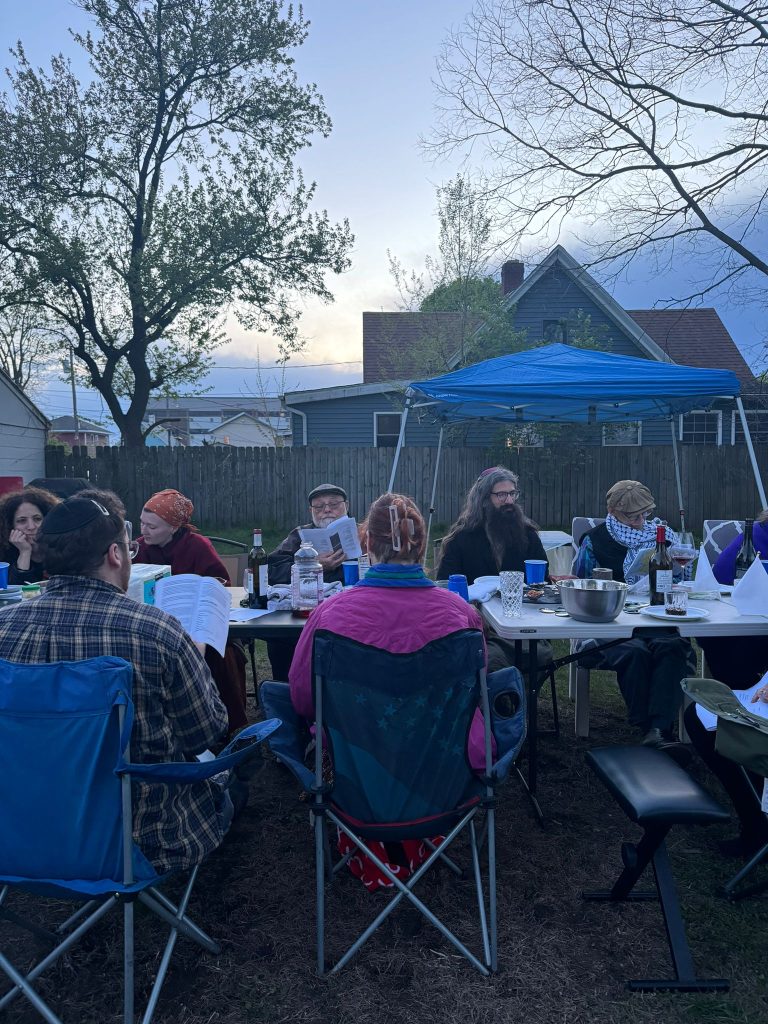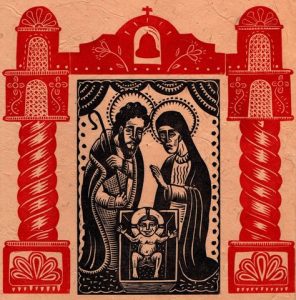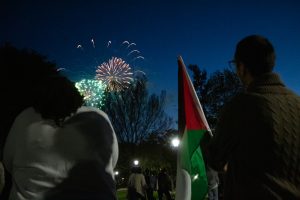What is a liberation seder?
This is an important question as many liberation seders, also known as freedom seders, were held during last month’s eight-day Jewish holiday of Passover. Jewish and allied students at Palestine solidarity encampments, including at Columbia and Yale, held freedom seders, and anti-Zionist Jews conducted such seders in South Africa, Australia, and throughout Europe. In Brooklyn, a “seder in the streets” blocked a road near Senator Schumer’s Brooklyn home, leading to hundreds of arrests. It has been inspiring to witness so many people worldwide seeking an exodus from all forms of oppression and colonialism including Zionism.
Backing up, a seder is the ritual-filled meal held during the Jewish holiday of Passover celebrating the biblical story of ancient Israelites’ exodus from enslavement by an Egyptian pharaoh. Our family has perfected the “express” seder. Following in that tradition, here we go. The Pharaoh ordered all male Hebrew newborns to be killed, but various Egyptian and Hebrew women–such as Shifra, Puah, Yocheved, and Miriam– intervened and saved many Hebrew boys including Moses. In fact, the Pharaoh’s daughter found baby Moses in a basket and raised him as part of the royal family. When Moses got older, however, he took the path of various other princes, such as Siddhartha Gautama and Piotr Kropotkin, and decided to side with the oppressed. In this case, the oppressed happened to be the Hebrews, his own people. Moses courageously demanded “Let my people go,” and the Pharaoh refused, so ten plagues ensued: blood, frogs, lice, flies, blight, boils, hail, locusts, darkness, and deaths of the first-born. The Israelites escaped to freedom by crossing the Red Sea.
This narrative, although mainly apocryphal in our opinion, has been a vital reference for Jews resisting oppressors from the Roman Empire to Nazi Germany. Warsaw Ghetto guerrillas fought Nazis during the Passover of 1943, burning tanks to the ground and inspiring further resistance in ghettos and camps. The exodus story also remains central to liberation theologies of Latin Americans and of continental and diasporic Africans.
So, when Jews and African Americans gathered in a Washington, D.C. church for a self-proclaimed Freedom Seder in 1969, a year after MLK’s assassination, they built on numerous rich legacies of finding liberatory inspiration in the biblical account. Yes, it contains troubling elements–influentially discussed by literary scholars Robert Warrior and Edward Said–of vengeance against Egypt’s first-born children and animals, slaughter of hundreds of Isralites who worshiped a golden calf, and genocidal conquest of the Canaanites. Ultimately, we appreciate that the text requires us to grapple with nuances and complexities while fighting for universal liberation.
What is the importance of a liberation seder right now?
The world’s dominant social system views the Earth and her inhabitants as slaves, and the resulting mechanisms of oppression and imperialism have sparked existential threats of global warming, ecological devastation and nuclear proliferation. Attendees at our seder have engaged in struggles for women’s and queer liberation, justice for migrants and minorities, self-determination for Kurds, Uyghurs, and Ukrainians, and animal liberation among other causes. We believe that solidarity among the marginalized is essential for ensuring human and nonhuman safety, and that is why as Jews we think we’ll be far safer in the long run by aligning with the oppressed and freedom fighters, rather than with present-day Pharaohs.
About 225 days into Israel’s war on the people of Gaza, tens of thousands of human beings and countless animals have been murdered by the reign of bombs and bullets. Israel has targeted hospitals and deliberately restricted access to food, medicine, and electricity. Israel has killed at least 35,000 Palestinians in Gaza, although the full death toll might be significantly higher.
Susan Abulhawa, a Palestinian journalist who visited Gaza, reported in March on the unimaginable devastation in northern Gaza: “Some are eating stray cats and dogs, which are themselves starving and sometimes feeding on human remains that litter streets where Israeli snipers picked off people who dared to venture within the sight of their scopes.” Israel is using Artificial Intelligence programs and advanced weaponry such as quadcopters which hover over targets and therefore aim more precisely. Around the world, governments are studying Israel’s techniques of unleashing atrocities on entire populations.
We agree with South Africa’s argument that that Israel’s war on Gaza clearly amounts to genocide. What else do you call it when Israel’s Prime Minister publicly invokes a Bible passage declaring, “Spare no one, but kill alike men and women, infants and sucklings, oxen and sheep, camels and donkeys”? We also share mainstream human rights groups’ consensus that Israeli policy towards Palestinians amounts to apartheid. In this context, liberation seders are demanding not merely a ceasefire but more fundamentally an exodus from Zionism, the root cause of all this devastation in Palestine.
How was the organizing process of putting it together, the event itself especially in relation to community solidarity?
We received encouragement from diverse segments of the community even though we deliberately did not advertise the seder very publicly. The dinner was sponsored by Michiana Jews Against Colonialism and Michiana Jewish Voice for Peace. About half of the attendees were Jewish. A Palestinian guest made a toast celebrating commonalities between Muslim and Jewish traditions of the prophet Moses known as Moshe in Hebrew and Musa in Arabic. One of our hosts read an acknowledgement honoring the Potawatomi and Miami peoples who have historically stewarded this ecoregion and who, from our experience, strongly support Palestinian freedom.
Our seder was predominantly vegan and entirely vegetarian, in part due to the dire ethical and ecological ramifications of animal agriculture. But also, this guideline made it simpler to meet the dietary restrictions of observant Jewish and Muslim guests. During Passover, Jews not only avoid year-round non-kosher foods like pork and shellfish but, for this holiday, avoid leavened bread and other products made from the wheat plant. Given that the seder fell on a weeknight and that it’s not easy for everyone to prepare a meal to bring to a potluck-style event, we were pleased with the turnout. It was touching to see that people studied the dietary rules and actually prepared dishes that could be enjoyed in accordance with Jewish traditions.
Although we did not seek non-Jewish sponsors, we were grateful to the support of various members of Michiana Friends of Palestine and Student Voices for Palestine. We are deeply inspired by the student encampments against Israel’s genocide. We as Jews have felt welcome at community groups’ Palestine solidarity events and we are able to have productive discussions even when we might disagree on some things. What we all do agree on, is best captured in a two part chant that has spread throughout the South Bend protests; “From the river to the sea, Palestine will be free. From the river to the sea, justice and equality.” Most importantly, we are grateful for the Glitter House being willing to host.
What are some practices performed during our night that especially highlighted standing against oppression?
Let’s start with the seder plate which is the vehicle for telling the exodus legend. Set in the center of the table, our seder plate had the traditional elements, such as bitter herbs representing the tears of oppression, an apple and nut mixture representing the sweetness of freedom, and parsley and lettuce representing spring. We modified some old traditions in order to have a vegan seder plate, with a yam replacing the lamb’s bone and an avocado pit replacing the egg. In accordance with relatively recent traditions, we added an olive representing peace and an orange symbolizing women and queer people.
We sang songs such as “Dayenu,” a radiant celebration of being alive and free. There is a Persian Jewish custom of slapping each other with scallions during the song in order to mock the biblical taskmasters. For some reason, this ritual has been part of every seder – traditional, queer, anti-colonial–that we’ve ever been to in South Bend since moving here a few years ago. So of course, that was included.
Though we followed the International Jewish Anti-Zionist Network’s haggadah, we included supplements such as the poem, “If I Must Die,” by the Palestinian author Refaat Alareer, whom an Israeli surgical airstrike murdered in December. The poem begins, “If I must die,/ you must live/ to tell my story.” Just a few days after our seder, Israeli forces bombed a relief charity building, killing Alareer’s daughter and grandchild who sheltered there.
We held vibrant and respectful discussions about the Passover legend itself. As we read the story and went over the rituals, we realized that many of us disagreed on what various aspects meant and symbolized. The discussion went on so long that a few people even had to leave before we got to the main course. On one hand that’s a lesson for us as organizers, but on the other hand, it shows just how engrossing we might find the process of discussing and critically enacting the various rituals and traditions.
In fact, a central theme of Jewish tradition involves a partially rebellious and doubtful attitude toward the deity. The ancient word Yisrael, a name for the descendants of Jacob, means “Wrestles with God.” How tragic is it that this same word, now the name of a modern nation-state, is so often invoked in order to silence and shut down debate, as we’re seeing with the violent crackdowns on student encampments. Fortunately, the state of Israel is less and less able to claim to represent world Jewry. Back in 2021, a quarter of U.S. Jews said they considered Israel an apartheid state and a fifth supported transforming the Palestinian and Israeli territories into a single democratic country. Surely that number will keep growing if Israel continues being a Pharaoh to the Palestinians and denying them their human rights to equality, self-determination, and return to their homeland. Passover at its best says (paraphrasing MLK) that oppression anywhere is a threat to oppression everywhere and that (paraphrasing JVP), all peoples are chosen and all lands are holy.




